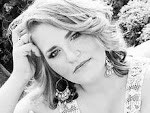When essential oils came across my radar I must admit, I cringed when I heard people talking about them. Oils called Highest Potential, Believe and Brain Power really turned me off. You expect me to buy into a bottle of oil making my friendships better, and my finances suddenly in the black?
What I failed to understand was the incredible power of our bodies, and the influence our sense of smell has. Smell is the sense most closely linked to memory and is highly emotive (arousing or able to arouse intense feeling). It's no wonder the perfume industry is built around this connection. Perfumers develop fragrances that seek to convey a vast array of emotions and feelings; from desire to power, vitality to relaxation.
We all have memories that are tied to specific smells. Most of us smell bread baking, or cookies in the oven, and we have a grandma or mom that comes to mind. When we think of those childhood memories of baking with them, or eating that fresh bread, our bodies have a chemical reaction. We automatically begin to relax, we feel happier, and we even begin to salivate... at just the thought of the smell. All these reactions are subconscious. We may not even realize what memories are being triggered by what we are smelling, but we have a reaction to it. How amazing is that?! Much of our power of smell is governed by association, so different people can have different reactions to the same smells.
When I was pregnant, my sense of smell 'betrayed' me. I couldn't go down entire aisles at the grocery store without getting sick. Most of the time that was my body's way of warning me to stay away from something on that aisle. In the same way, our sense of smell is what keeps us from drinking bad milk, it warns us of dangers and often keeps us from harm.
The limbic system, where our sense of smell is, is regarded by scientists as playing a major role in controlling mood, memory, behavior and emotion. (This is where it gets fun)
Essential oils have the ability to cross the blood-brain barrier and can affect change at a cellular level. Our bodies are very selective about what they allow to cross that barrier. In order to cross the blood-brain barrier, the thing must be: tiny particles, hydrophobic and non polar (no electrical charge, positive or negative). Essential oils meet all of these qualifications.
Smelling (inhalation) is the fastest and best way for the oils to breech that barrier and reach the limbic system - the control center- of the brain. Where they have the ability to help change our moods and trigger reactions that can impact everything from our fitness, to our finances.
NO, opening a bottle of Family and smelling it won't fix your family issues, or make your family closer. But diffusing it at family game night and being intentional about remembering that smell will create a memory in your brain. Then when things are a bit tense around the house, you can diffuse it again. You can apply it to the pulse points (wrists, back of neck) and it helps you to relax and brings in those memories of better, less stressful times with the family. Essential oils, in this case, are not a cure, they are a tool. They are a very powerful, valuable tool, that when used right can help you bring balance to your world.
When the toddler is wound up and causing stress for both of you, you can use lavender and peace and calming or stress away to help to calm you both.
Our bodies always want to be in a place of homeostasis (balance) and an imbalance in your emotional health can effect your physical health. It can manifest as pain, dizziness, gastrointestinal issues, etc. If we expose our brains to uplifting, energizing, emotionally supportive oils, we can then work through the issues we are facing with much more success. Essential oils help to bring that balance back to our bodies and our lives.
~Grammy's Essentials Team
www.grammysessentials.com
The information contained in this blog is for educational purposes only and as a guideline for your personal use. It should not be used as a substitution for medical counseling with a health professional. The contributors and authors do not accept responsibility for such use.



Sorry for the misspelling in the link to this article.
ReplyDeleteI caught it, and changed it, but the link didn't update. Oh, well.